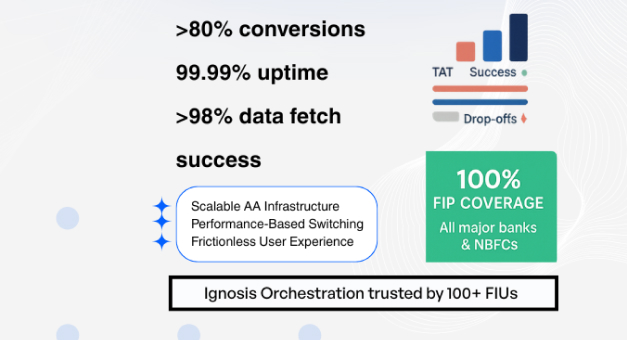The AA Advantage: Automating SEBI Prohibition of Insider Trading Compliance for a Frictionless Future
Indian financial compliance teams face a considerable challenge in managing employee investment disclosures to comply with SEBI’s PIT Regulations, designed to prevent insider trading. The conventional method, relying on manual spreadsheets and self-reported data, burdens employees, who already dedicate significant time to information management, and introduces inefficiencies and potential inaccuracies for compliance in this critical regulatory area. Fortunately, India’s RBI-regulated Account Aggregator (AA) framework offers a streamlined solution. By facilitating secure, consent-driven digital sharing of investment data directly from employees to employers, AA promises to significantly improve the efficiency and accuracy of adherence to SEBI’s PIT Regulations.
A New Foundation: The Rise of Consent-Based Data Sharing via AA
Regulated by the RBI, AA provides secure, standardized “data pipes” that allow individuals to share their financial information digitally, but only with their explicit consent.
Think of it this way: instead of an employee manually pulling data from their broker (a Financial Information Provider or FIP) and sending it to their employer (a Financial Information User or FIU), the employee uses a few clicks to grant permission for the data to flow directly and securely.
Standardizing the Request: The Role of Consent Template CT043
To make this data sharing practical and scalable for specific needs, the AA ecosystem relies on standardized Consent Templates. For SEBI compliance, CT043 (“Employee Investment Reporting for Compliance”) is the purpose-built standard, defined through industry collaboration facilitated by Sahamati.
CT043 ensures clarity and precision. It specifies exactly what data is needed (e.g., Demat account transactions, Mutual Fund holdings), why it’s needed (Purpose Code 109 for compliance), how often (recurring fetches for ongoing monitoring), and for how long (defined consent expiry) . This targeted approach ensures only necessary data is requested, aligning with data minimization principles and regulatory expectations. It provides the structure needed for technology solutions to request and receive compliance data consistently across the ecosystem.
Ignosis: Bridging the Gap to Automated Compliance Assurance
The AA framework and CT043 provide the rails and the rules, but organizations need a way to operationalize this capability effectively. This is where we become essential enablers.
Ignosis leverages the AA infrastructure to automate the entire employee disclosure process. Instead of relying on manual submissions, Ignosis facilitates the CT043 consent request directly to the employee. Once consent is granted, Ignosis securely receives the verified investment data (holdings, transactions) directly from the source FIPs via the AA network.

By integrating directly with the AA ecosystem and applying domain-specific intelligence, Ignosis transforms raw, consent-driven data into actionable compliance assurance.
The Tangible Benefits: Efficiency, Accuracy, and Reduced Risk
The shift to an AA-enabled, Ignosis-powered process delivers compelling advantages:
- For Compliance Teams: A dramatic reduction in manual workload , freeing up valuable time for strategic analysis and investigation. Accuracy improves significantly as data comes directly from verified sources. Timeliness is enhanced with regular, automated data fetches. Most importantly, regulatory risk is substantially mitigated.
- For Employees: The burden of manual reporting disappears, replaced by a simple, transparent digital consent process. They retain control over their data, knowing exactly what is shared and why.
- For Regulators: The AA framework and solutions like Ignosis significantly boost regulators’ oversight. They gain reliable, auditable data, reducing reliance on error-prone self-reporting. Standardized data via CT043 improves market surveillance and strengthens monitoring of insider trading. This fosters a more transparent and trustworthy financial ecosystem, increasing regulators’ confidence in compliance assessments.
This isn’t just about adopting new technology; it’s about fundamentally improving how compliance operates, making it more efficient, reliable, and less burdensome for everyone involved. It aligns with broader trends where AI and automation are boosting productivity and enabling data-driven decision-making across enterprises.
Isn’t it time your compliance function moved beyond the spreadsheet? Learn how Ignosis can help you leverage the power of consent and automation.
Want these results for
your lending stack?








